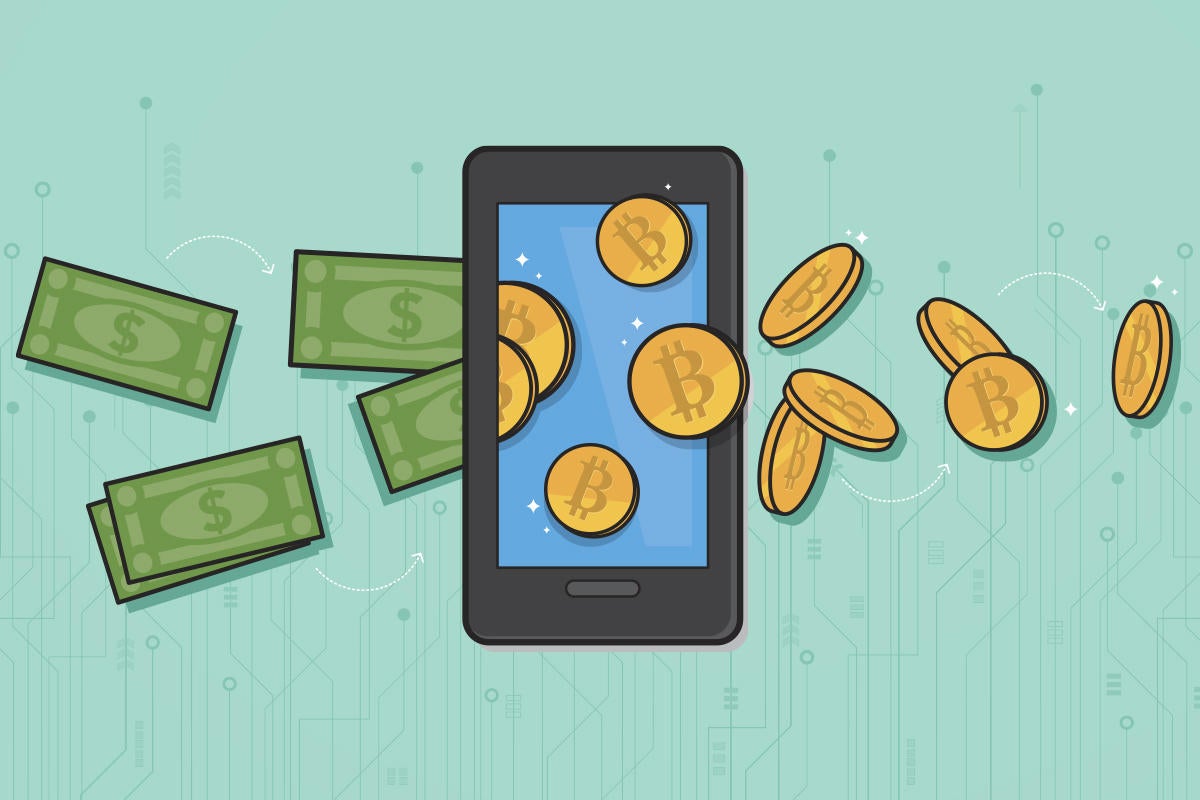AT&T becomes first big mobile carrier to accept Bitcoin payments

Credit to Author: Lucas Mearian| Date: Fri, 24 May 2019 09:47:00 -0700
AT&T will allow customers to pay their mobile bills using Bitcoin, adding its name to a short list of major businesses and government agencies that allow the blockchain-based cryptocurrency to be used as a form of payment.
While not directly accepting cryptocurrency, AT&T is the first major U.S. mobile carrier to let customers pay in Bitcoin through a third-party service provider.
Customers using its online bill pay service or the myAT&T app will be able to choose BitPay, a cryptocurrency payment processor for payments. The customer pays in Bitcoin and BitPay verifies the funds and accepts the Bitcoin on behalf of the business.
“We’re always looking for ways to improve and expand our services,” Kevin McDorman, vice president of AT&T Communications Finance Business Operations, said in a statement. “We have customers who use cryptocurrency, and we are happy we can offer them a way to pay their bills with the method they prefer.”
Through BitPay, businesses such as AT&T have the option to take Bitcoin, fiat currency or a combination of the two, according to a BitPay spokesperson. If the business using BitPay chooses to take 100% fiat currency, the dollars are deposited into the business’ bank account the next business day minus a 1% fee BitPay charges for the entire process.
“The business is protected from any bitcoin price volatility,” the BitPay spokesperson said via email.
Overstock.com was among the first, if not the first, company to accept cryptocurrency, and its venture capital arm – Medici Ventures – has made significant investments in the technology.
Earlier this year, the state of Ohio announced it would allow citizens to pay their taxes in Bitcoin. Taxpayers can go through its OhioCrypto.com website and their Bitcoin payment gets converted into U.S. dollars before being transferred to Ohio’s state coffers. Last year, Florida’s Seminole County became the first government agency to accept cryptocurrency for payments for various services.
“There are quite a few similar offerings around,” said Martha Bennett, a principal analyst with Forrester Research. Amazon, Bennett pointed out, recently began accepting cryptocurrency for payments through Moon, a payment processor.
An example of a purchase being made on Amazon.com via Bitcoin processing service Moon.com.
“You pay in cryptocurrency, Amazon gets USD,” Bennett said via email. Moon claims on its website that users of its service will soon be able to shop on other e-commerce websites such as eBay, Ali Express and Target.
Facebook is developing its own cryptocurrency for payments, according to at least two reports, a move that has the potential to make the social network billions of dollars while also helping to eliminate fake news and bots. Visa and cryptocurrency exchange Coinbase have created a debit card that will allow users to make purchases tied directly to their crypto wallets.
The desire to use cryptocurrency for any number of purposes is growing, especially among millennials, according to a study published in October by Edelman research. The study included a survey of 1,000 millennials, 25% of whom make $100,000 or more, or who have at least $50,000 in investable assets, and own cryptocurrency. Nearly another third of those surveyed indicated they are interested in using or owning it cryptocurrency.
The Edelman survey, and others, validate the perception that millennials don’t trust banks and the established financial system, according to Avivah Litan, a Gartner vice president and distinguished analyst. Millennials are also concerned about future financial crises.
“Millennials generally understand cybersecurity issues more than their elder counterparts and many of them trust blockchain data security more than the banks’ security,” Litan said.
“According to AT&T, they have customers interested in making cryptocurrency payments and I believe that to be true,” Litan continued. “There’s an entire generation of millennials that is more open to using digital cash, and protecting themselves from global political unrest and government censorship and control. AT&T is right to assume that many of these individuals, for lots of reasons, will want to pay their phone bill using cryptocurrency.”
Of course, Litan pointed out, business systems need to be ready for cryptocurrency retail payments. In AT&T’s case, BitPay is shielding it from currency fluctuation risk, but blockchain technology still has a long way to go before it is scalable for high volumes of retail payments supported by seamless and secure user interfaces, according to Litan.
AT&T’s move is a small step in moving the infrastructure for cryptocurrency retail payments forward, according to Litan, though it will still be years before meaningful user adoption.
“But it’s coming, if you ask me,” Litan said.
Forrester’s Bennett is not convinced.
“There are still few retailers that accept cryptocurrency; I see no evidence that there is demand from the wider public for cryptocurrencies as a payment instrument, and if anything, the number of retailers accepting cryptocurrency has actually gone down,” Bennett said.
Overstock.com’s CEO, Patrick Byrne, a strong proponent of cryptocurrency, recently said at a conference that 0.2% of Overstock sales are in Bitcoin, Bennett noted. “And … this number has remained unchanged since 2013.
“There are no real advantages for a retailer in accepting cryptocurrency at this stage,” she said.